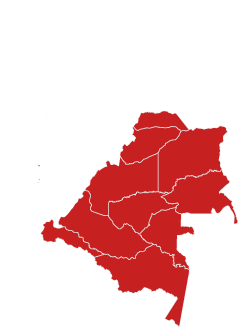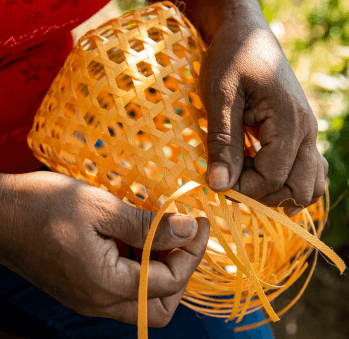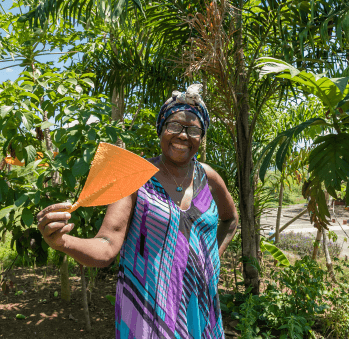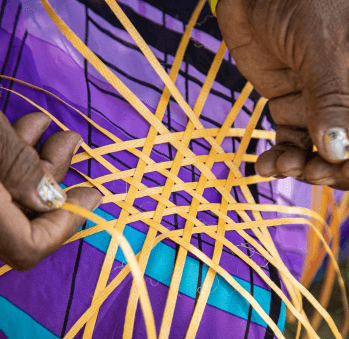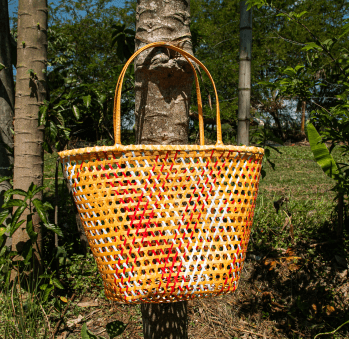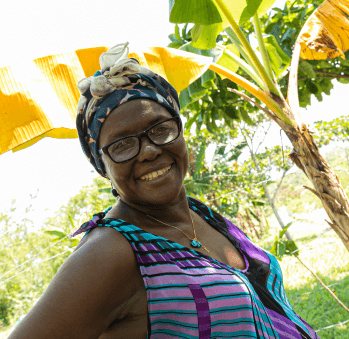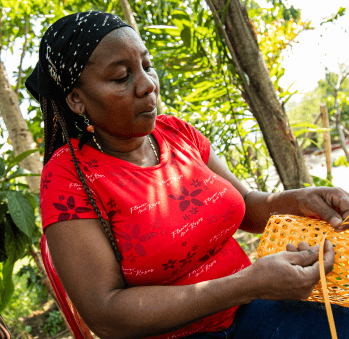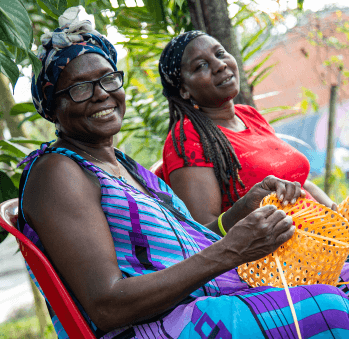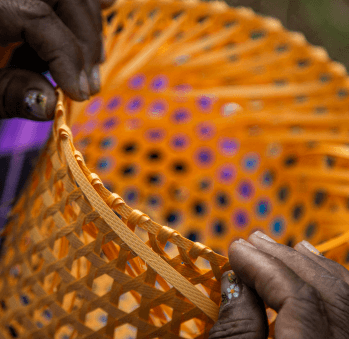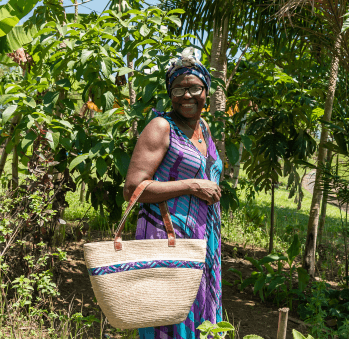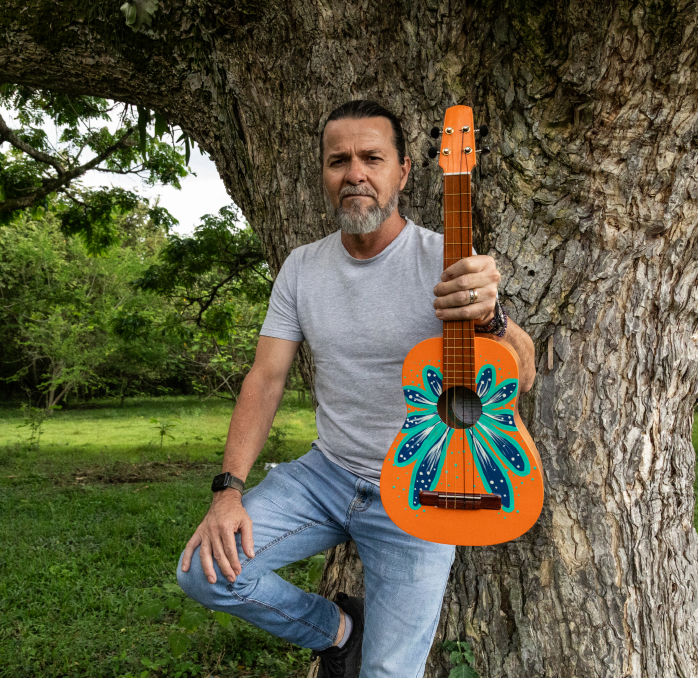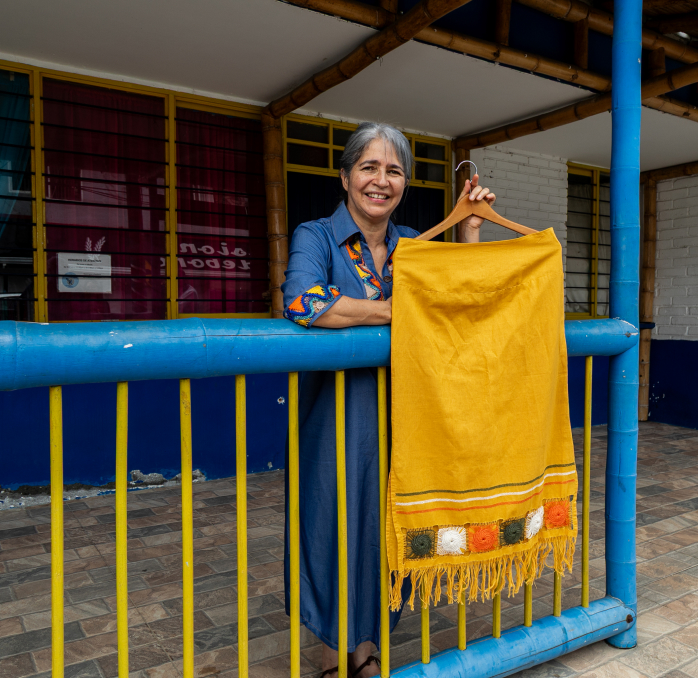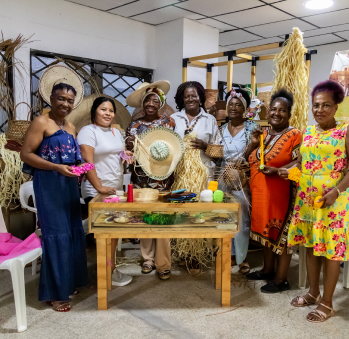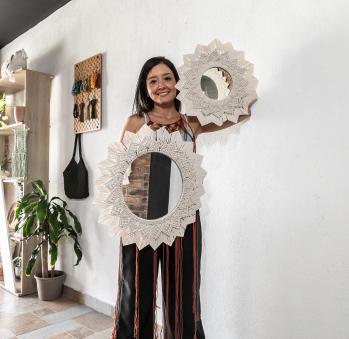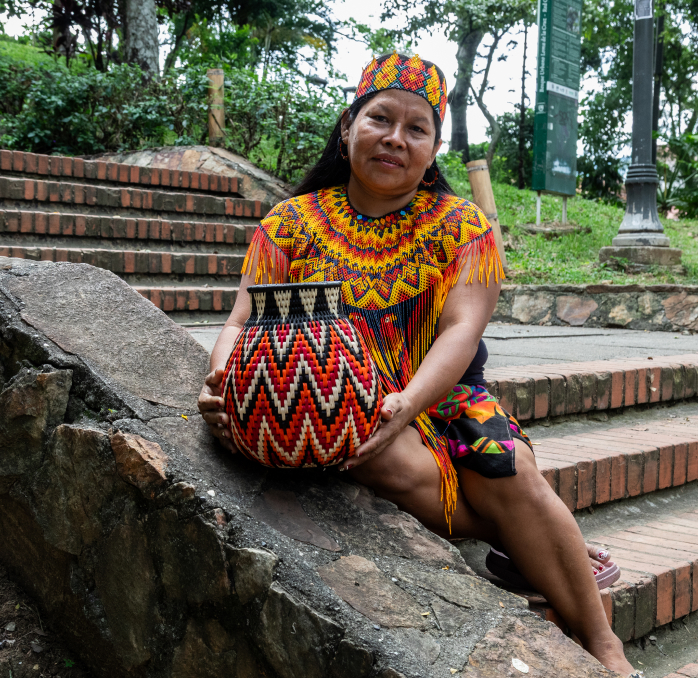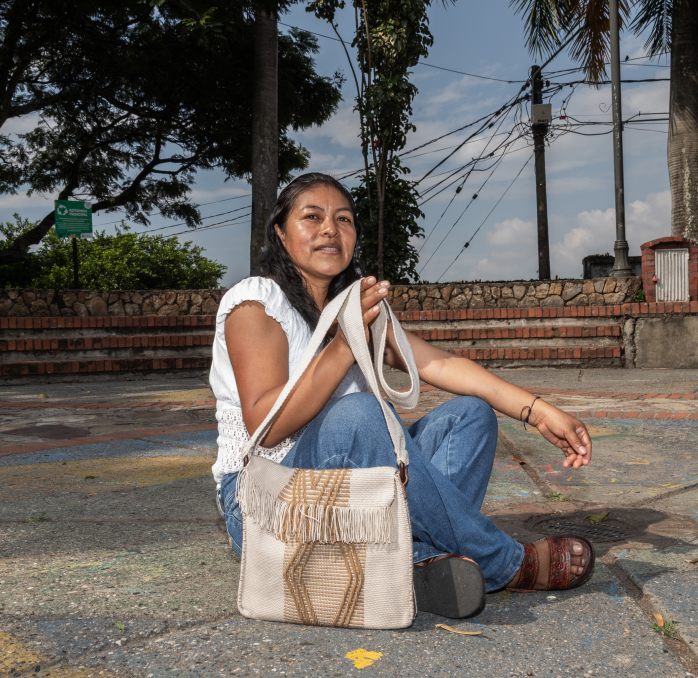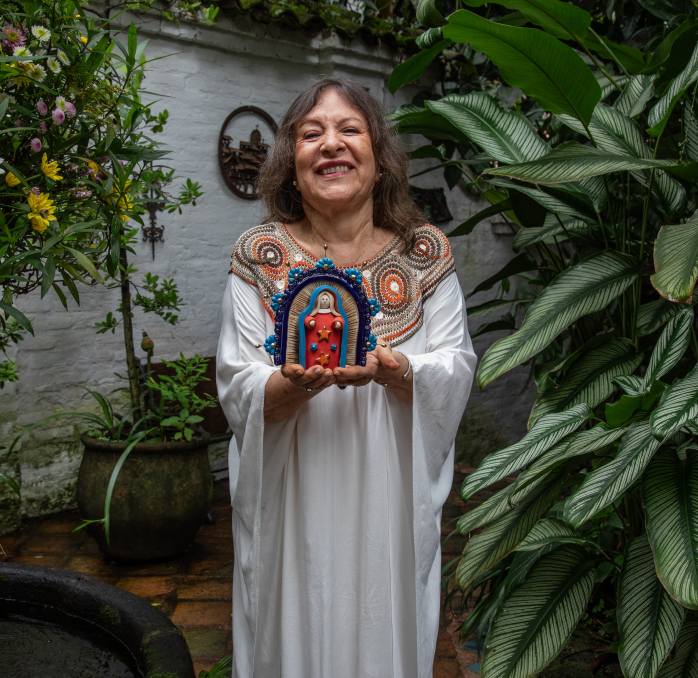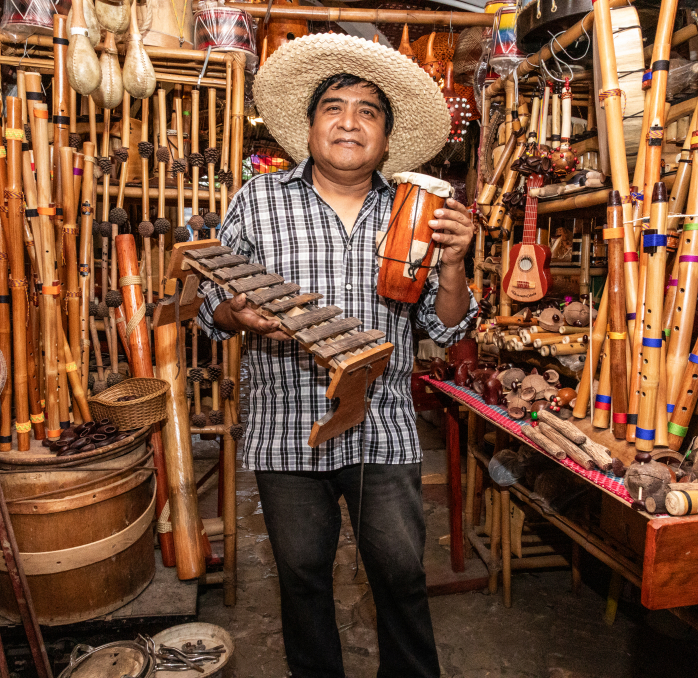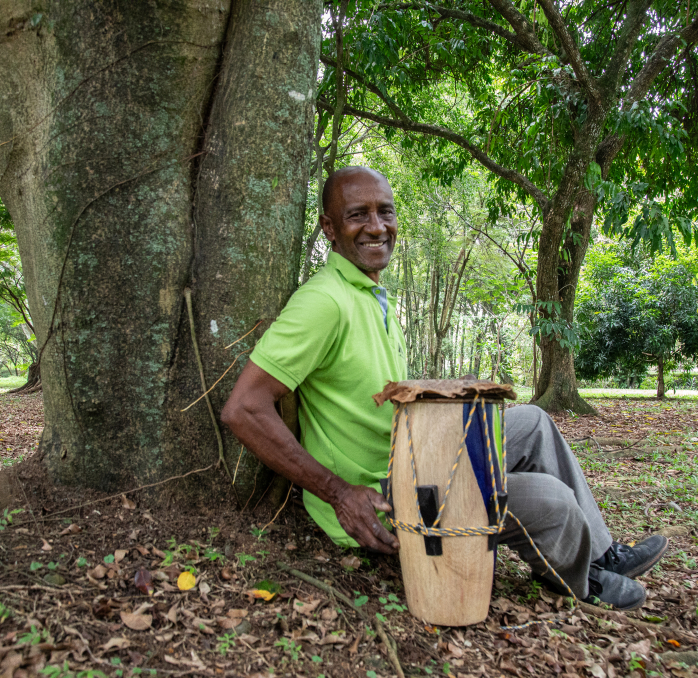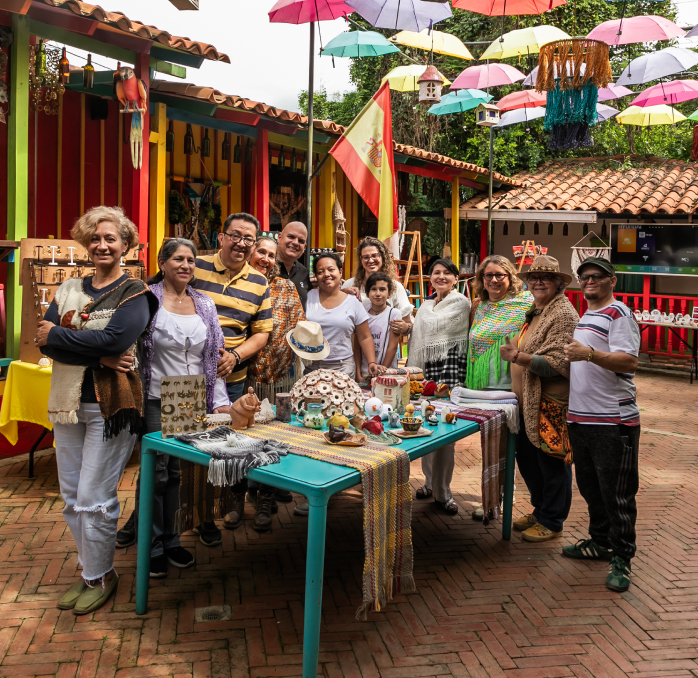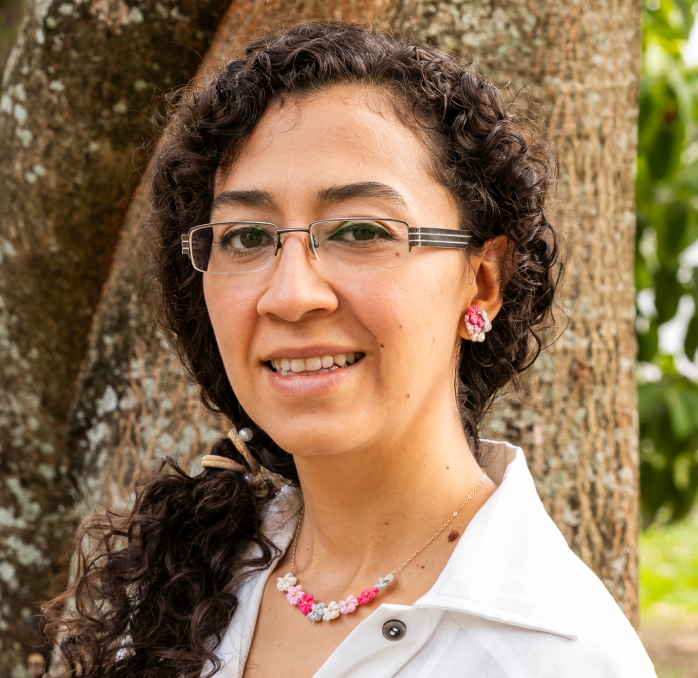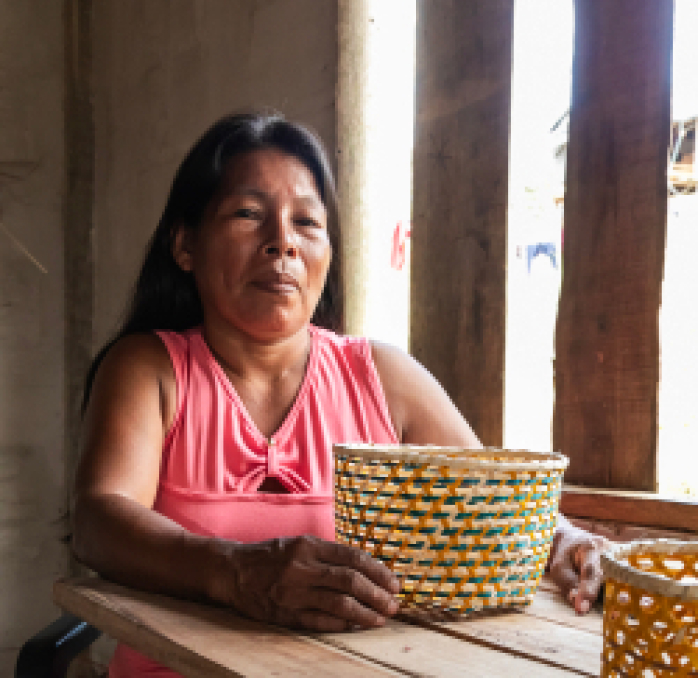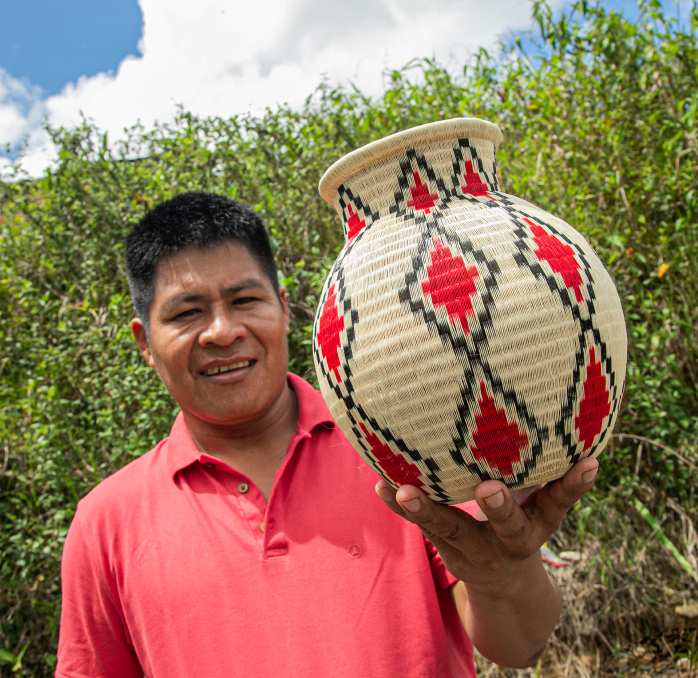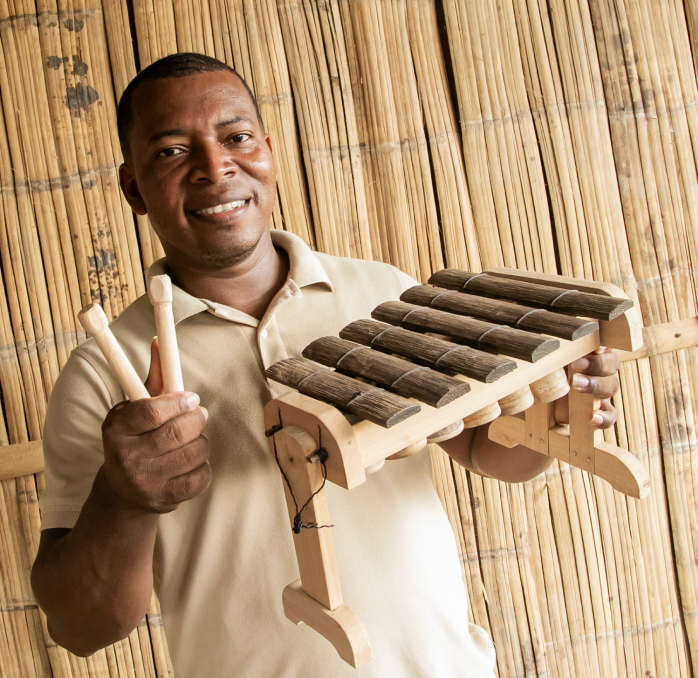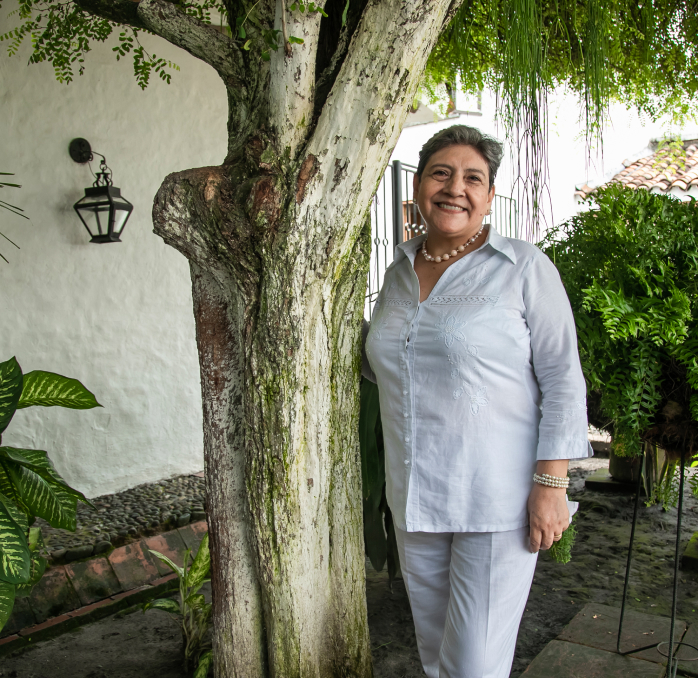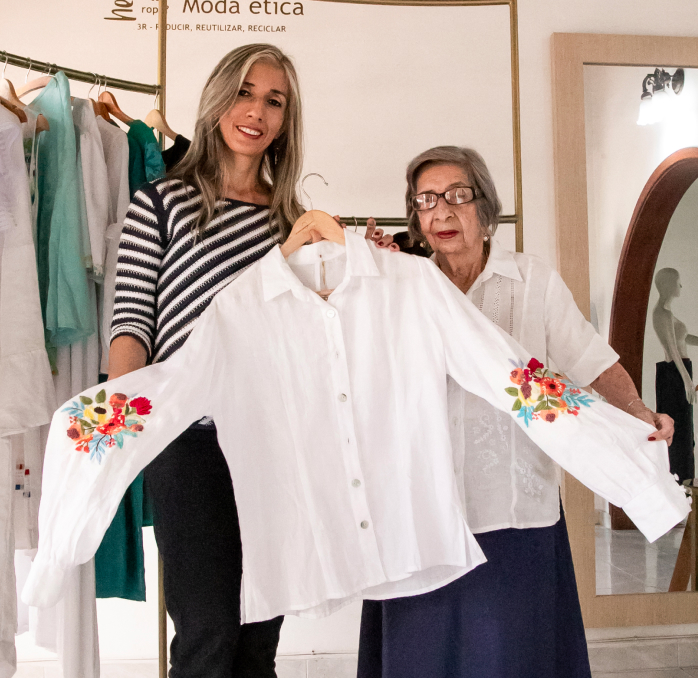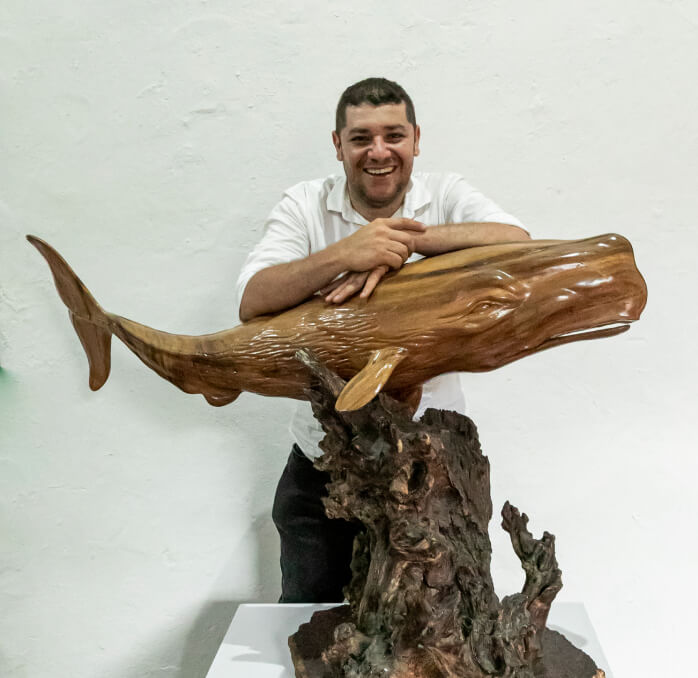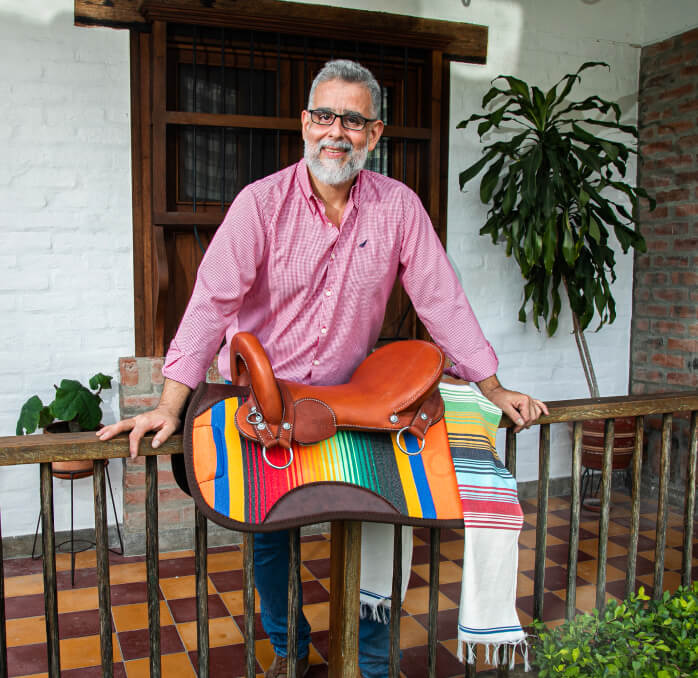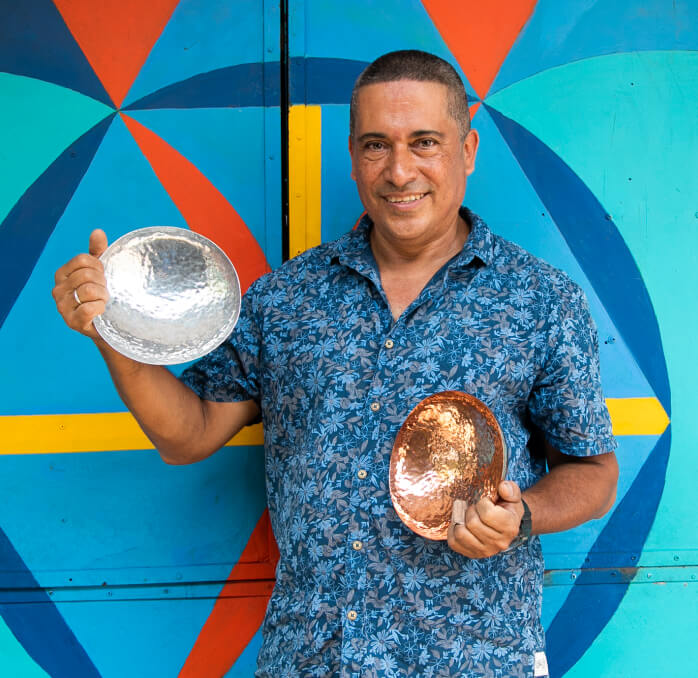Deira Tomaza Quiñonez
Workshop: Artesanía Magüí
Craft: Cestería
Trail: Valle del Cauca route
Location: Cali, Valle del Cauca
One day, God told Deira to start weaving baskets. She had been employed as a flat machine operator at a factory in Cali, but by the end of the year, her wages were not paid. During those days, whenever she turned on the television, the news discussed economic benefits for artisans. So, in January, when the factory failed to pay her once again, she felt desperate. She went outside, sat on the pavement, and asked God for guidance on becoming an artisan. He responded: baskets.
Deira believed she didn’t possess any knowledge about craftsmanship. She grew up in Magüí Payán, Nariño, where her mother and grandmother had taught her the traditional weaves of her ancestors. She knew how to weave with rampira, also known as iraca, and paja tetera. With these fibers, they crafted baskets used for harvesting fruits in the scrubland: plantains, yucca, and corn. However, at that time, nobody referred to these baskets as crafts. Deira held the notion that crafts were quite different from the items they wove in the countryside.
The day after God’s word, Deira left her house with 3,000 pesos to buy breakfast. She had been thinking about her revelation, and her heart was filled with joy. Despite having God’s clue, she was uncertain about the material to weave the baskets since rampira and paja tetera were not available in Cali. While walking the streets in search of breakfast, God made her look down and she noticed a small piece of plastic strap at her feet. Instantly, she recognized this as the material she should use. She collected the plastic straps, which she refers to as guasquita, and inquired with people until she found where to buy them. Her hunger forgotten, she spent the 3,000 pesos on plastic straps and returned home to give her baskets a first try.
However, she realized that she had forgotten how to weave. It had been so long since she last crafted a basket, and with both her mother and grandmother gone, she had no one to turn to for assistance. Once again, she prayed to God, asking for his guidance in mastering the craft. Her prayers were answered, as God not only guided her weaving but also helped her design the handles, different from those used in the countryside. The next step was to acquire more guasquitas, which she found in junkyards in Cali. After cleaning and weaving them, people would ask her what she planned to do with the waste, to which she replied: baskets. One day, she offered her baskets to a charity, and they placed an order for two hundred pieces. Although her project was just beginning, and she had no employees, she accepted the order. She found people who could cut, strip, and learn to weave. She delivered the order a day ahead of schedule.
Today, she collaborates with groups of women who oversee different steps of the process: stripping, cutting, weaving to a certain point, bending, forming the rim, attaching the handle, and completing each basket. She has taught many of them the technique of closed weaving and has helped women from the countryside, like herself, remember how to create the complex eye-weave that’s prone to unravel during the process. While upcycling materials like plastic bands, Deira managed to make her dreams a reality. Even before God spoke to her, she had an aspiration: to establish a company that could provide employment for seniors. A few days before receiving her revelation, she sketched her vision on paper—a company with twenty employees, a watchman, and an office. Today, that sketch has transformed into her actuality.
Craft
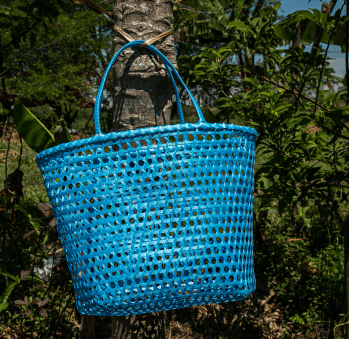
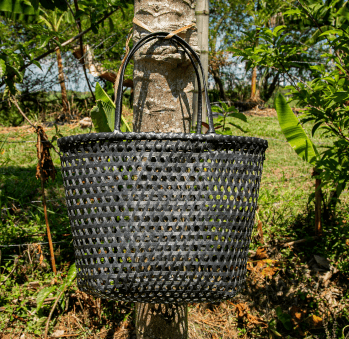
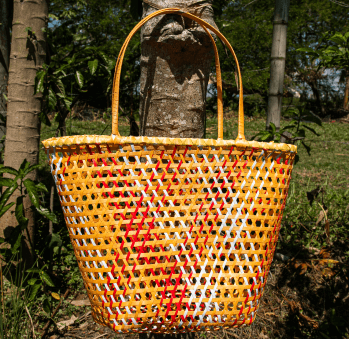
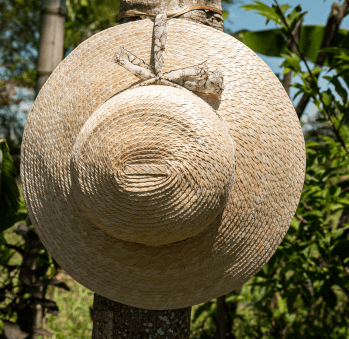
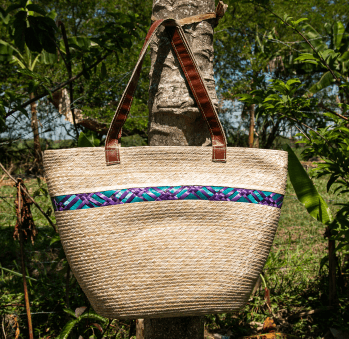
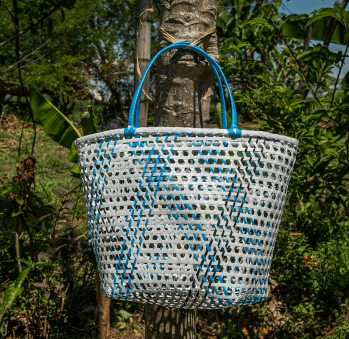
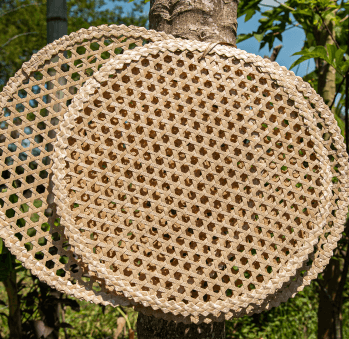
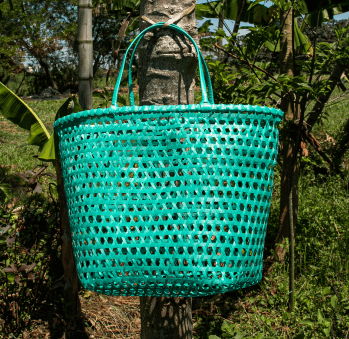








Artisans along the way
Artisans along the way
No puede copiar contenido de esta página

